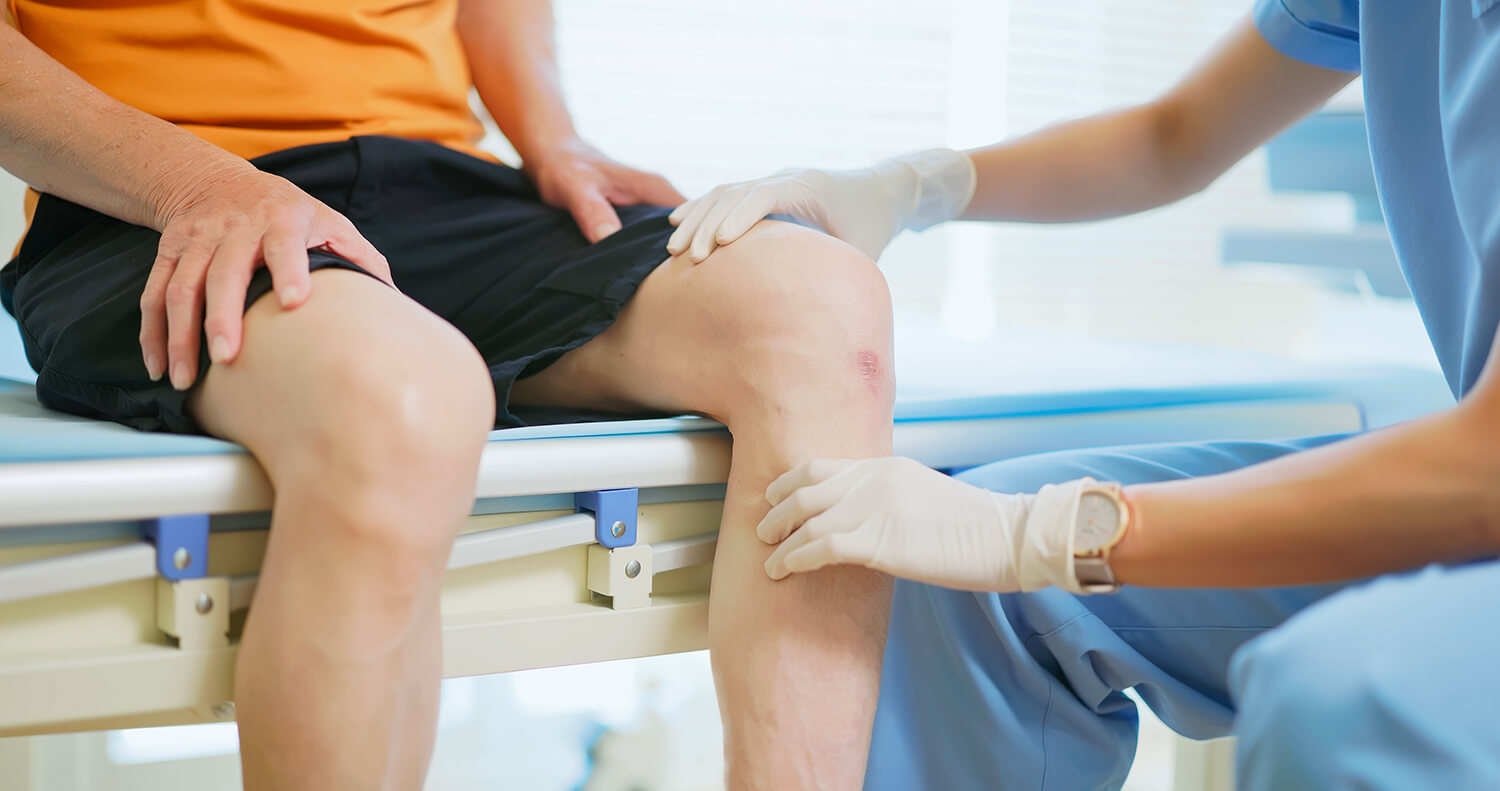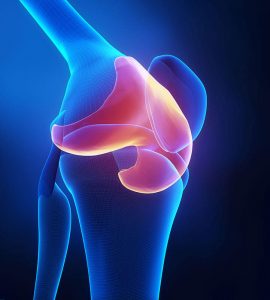
Knee Surgeon in Singapore
Dr James Tan Chung Hui
Qualifications and Certifications
- Bachelor of Medicine, Bachelor of Surgery (Singapore)
- Member of the Royal College of Surgeons (Edinburgh)
- Master of Medicine in Orthopaedic Surgery
- Fellow of the Royal College of Surgeons in Orthopaedics and Trauma (Edinburgh)
- Adjunct Assistant Professor (NUS, LKC)
Dr James Tan, a knee surgeon with over a decade of experience in sports medicine, specialises in treating knee injuries among elite athletes, including those from the Singapore National Teams and professional football leagues. Having received fellowship training in knee injury treatment at the Technical University of Munich, Dr Tan is proficient in minimally invasive techniques for ligament, meniscus, and cartilage repair. His dedication extends beyond the operating room, as evidenced by his published research on knee injury treatments. A three-time Service Champion Gold Award winner, Dr Tan is committed to providing exceptional care and personalised treatment plans.
The knee joint is the largest and most complex joint in the body, connecting the lower and upper legs. It is composed of bones, ligaments, cartilage, muscles, and tendons, which are all interconnected to allow the knees to bend and straighten and also support the body’s weight.
The knee is composed of three bones, each end is covered with a layer of cartilage that absorbs shock, allows movement between the bones, and protects the knee. They are the:
- Tibia – This is a large bone in front of the lower leg, also known as the shin bone.
- Femur – This is the upper leg bone, also known as the thigh bone.
- Patella – This is a thick, triangular bone at the front of the knee, also known as the kneecap.
Two groups of muscles support the knees: the quadriceps muscles for the straightening of the knee and the hamstring muscles for the bending of the knee. Other components of the knee include the tendons, which are fibrous bands of tissue extending from the muscles to the bones; and the ligaments, which are elastic tissues that form a connection between bones that stabilises them and also limit tibia movement.

What Is Knee Pain?
Knee pain is a common musculoskeletal problem that affects people young and old alike. This can be the result of injury or disease like arthritis, gout and infections. Knee pain may also develop from general wear and tear over time.
What Are the Symptoms of Knee Pain?
Depending on the type and severity of the underlying cause, symptoms associated with knee pain may be accompanied by:
- Swelling
- Stiffness or locking
- Feeling of warmth and redness
- Muscle spasms
- Popping or crunching sensation
- Inability to extend the knee
Are you experiencing symptoms of knee pain?
Schedule a consultation at 8028 4572 today for prompt diagnosis and treatment.
What Are the Causes of Knee Pain?
Knee pain is commonly caused by the following factors:
- Ligament Injuries – These usually result from a sudden twisting motion or a direct impact sustained from a car accident or sports activity.
- Tendon Injuries – These are caused by the overuse of the knees or sudden fall, and its severity can range from an inflammation to a tear.
- Broken Kneecap – This happens when the bone covering the front of the knee (patella) is dislocated following a fall or an impact on the front of the knee.
- Osgood-Schlatter’s disease – This condition is characterised by a bony lump below the kneecap that swells and becomes painful with exercise.
- Patellofemoral Pain Syndrome – This condition occurs due to muscle imbalance, stiffness, and alignment issues in the knee, which result in discomfort when climbing stairs or running.
Don’t let knee pain hold you back.
Consult an orthopaedic specialist at 8028 4572 to regain your mobility.
What Are the Common Knee Problems?
Knee problems often result from ageing, injuries, and wear and tear. Common knee problems include:
- Knee Cartilage Injury or Damage – This condition causes knee joint pain, inflammation, and stiffness, usually as a result of an injury.
- Meniscus Tear or Meniscal Cyst – This condition occurs when the knee has experienced excessive tension or twisting.
- Strains and Sprains – These injuries result from over-extension or tearing of the ligaments, tendons, or muscles in the knees.
- Anterior Cruciate Ligament (ACL) Tear & Posterior Cruciate Ligament Tear – These are tears or sprains in the ligament due to a twisting injury or contact trauma suffered in sports.
- Medial and Lateral Collateral Ligament Tears – These are injuries to the collateral ligaments that usually occur due to a force pushing the knee sideways.
- Knee Osteoarthritis – This is a degenerative disorder in which the cartilage in the knee slowly deteriorates with age and wear.
- Rheumatoid Arthritis – This is an autoimmune condition that causes knee joint inflammation and cartilage damage.
- Patella Cartilage Injuries and Instability – This refers to the deterioration or tearing of the patellar (kneecap) cartilage, which is common in athletes and older adults with arthritis.
- Fractures – This is a partial or total break in the patella (kneecap) as a result of falls or collisions.
- Knee Bursitis – This is the inflammation of tiny fluid-filled sacs (bursae) around the knee joint due to stress or repetitive use.
- Patellar Tendinitis – Also known as jumper’s knees, this condition results in the swelling and irritation of the patellar tendon, which attaches the kneecap to the shinbone (tibia).
How Are Knee Conditions Diagnosed?
In addition to a thorough health history and physical exam, the orthopaedic doctor may perform the following imaging tests to diagnose knee problems:
- X-ray – This test involves the use of invisible electromagnetic beams that can identify fractured bones and joint degeneration.
- Magnetic Resonance Imaging (MRI) – This technique uses radio waves and strong magnets to create detailed images of the knee to detect damaged ligaments or muscles.
- Computed Tomography (CT) Scan – This test uses X-rays combined with computer technology to create cross-sectional images (“slices”) of any part of the body.
- Ultrasound – This test utilises sound waves to provide real-time images of tissue structures within the knee joint.
Dr James Tan adopts a tailored approach to treating your knee condition.
Explore your treatment options at 8028 4572.
What Are the Treatment Options for Knee Conditions?
Treatment for knee conditions varies according to the underlying cause and severity of the problem. Some treatment options are as follows:
- RICE Method – For minor injuries, this consists of resting the injured area, applying an ice pack appropriately for pain relief and reduction of swelling, compressing the injured area, and elevating the leg.
- Physiotherapy – This refers to specific exercises intended to improve knee strength, flexibility, and joint mobility.
- Corticosteroid Injections – This is injected into the knee joint to reduce symptoms and provide pain relief.
- Immobilisation – Knee braces help support and prevent excessive pressure and weight from being applied onto the injured knee.
- Medication – Nonsteroidal anti-inflammatory drugs (NSAIDs) such as ibuprofen and naproxen can relieve soreness and inflammation.
- Surgery – Surgery may be necessary when the knee joint has been severely damaged or inflamed. A knee surgeon may recommend a variety of surgical options, such as:
Arthroscopic Surgery – This Singapore knee surgery involves the insertion of a tiny camera (arthroscope) and microsurgical tools into small incisions in the knee to diagnose and repair the damage.
Partial Knee Replacement Surgery – During this procedure, the knee surgeon replaces the damaged portion of the knee cartilage with metal and plastic components.
Total Knee Replacement Surgery – The Singapore knee surgeon removes damaged cartilage and bone from the thigh bone, shinbone and kneecap, and implants an artificial knee in its place.
Osteotomy – This Singapore knee surgery involves the removal of bone from the thigh bone or shinbone to restore knee alignment and alleviate arthritis symptoms.
What Are the Risk Factors?
Several factors can contribute to knee problems, including:
- Being overweight or obese, which leads to increased stress on the knee joints.
- Having insufficient muscle strength and flexibility, which increases the possibility of a knee injury.
- Having certain sports or jobs that place a lot of strain on the knees.
- Having sustained a previous knee injury before, which increases the risk of sustaining another injury.
Are There Any Complications of Knee Problems?
Certain knee conditions may cause severe pain, deformity, weakness and numbness, joint degeneration and mobility issues without prompt and targeted treatment.
Seek prompt treatment for knee pain at 8028 4572 to prevent the injury from worsening.
How to Prevent or How to Reduce the Risk of Having Knee Problems?
The following tips may help to prevent knee injuries:
- Maintain a healthy weight to reduce knee strain
- Practise effective techniques during exercise
- Perform proper training to build up muscle strength (helps to stabilise the knee better)
- Ensure that you wear comfortable and appropriate shoes
Quantum Orthopaedics is headed by experienced Singapore knee surgeon Dr James Tan, who specialises in sports surgery and exercise medicine. Let us help you overcome knee pain and resume an active and healthy quality of life. Call 8028 4572 to learn more about the clinic’s services.




